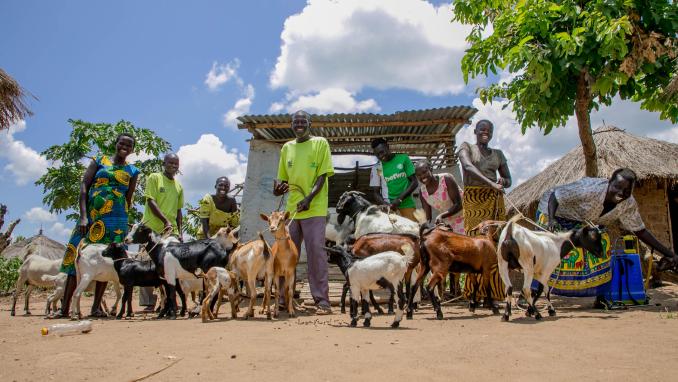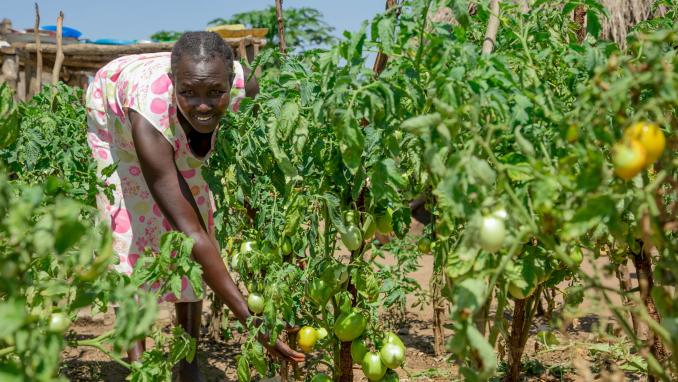Since the onset of the conflicts in South Sudan in 2014, over 800,000 South Sudanese fled their homes to Uganda seeking safety from the fighting. Oxfam has been responding to the South Sudanese refugee influx since the onset of the conflicts in 2014, and with funding from agencies and affiliates like KLUB, Oxfam IBIS, Oxfam Hong Kong and Oxfam Belgium, we have been able to enroll youths-- both refugees and host community members in vocational skills training, bricklaying and concrete practice, tailoring, hairdressing, motor repairs, carpentry among others.
Besides the vocational skills, refugees have also been supported with agricultural inputs in form of vegetable seeds, beans, groundnuts, onions, as well as farm tools like hoes, garden forks among others. They have also been trained in general agronomy, group dynamics, farming as a business and post-harvest handling.
Read some of the stories from the benefactors of the Livelihoods project.
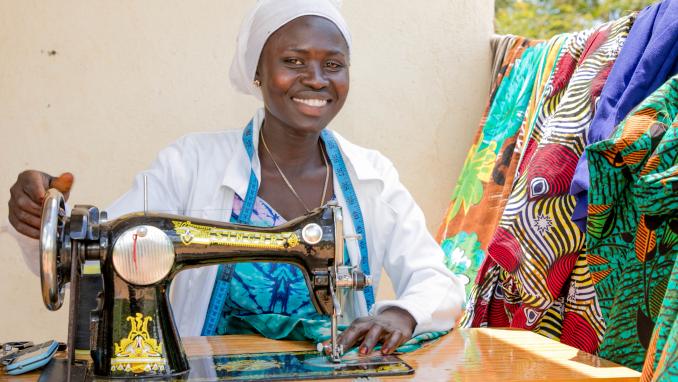
Aisha is one of the Ugandan host community members in Bidibidi Refugee settlement that benefited from Oxfam’s livelihoods project. The project, funded by KLUB saw the training of over 90 people, both South Sudanese refugees and host community members, to receive training in tailoring/sewing for 3 months. This training is a tool aimed at empowering refugee and host communities with professional skills and promote their independence and financial self-sufficiency.
Read her story here.
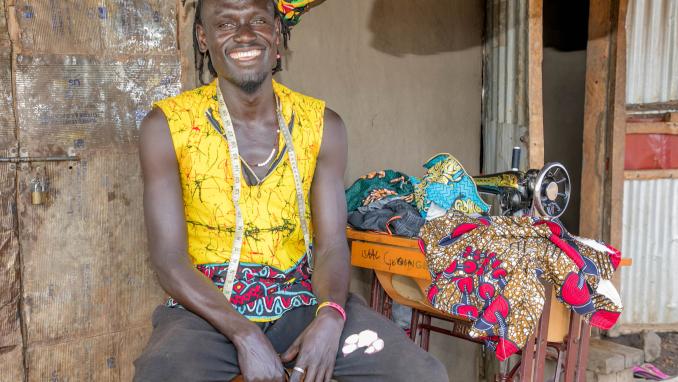
"Using my hands and creating something beautiful earns me a living and it also calms me down. The lady and gentleman who teach the tailoring class were like parental figures for us, and I am grateful for that" Isaac Gereny, a 24-year-old refugee from South Sudan settled in Bidibidi.
Read more about Isaac here.
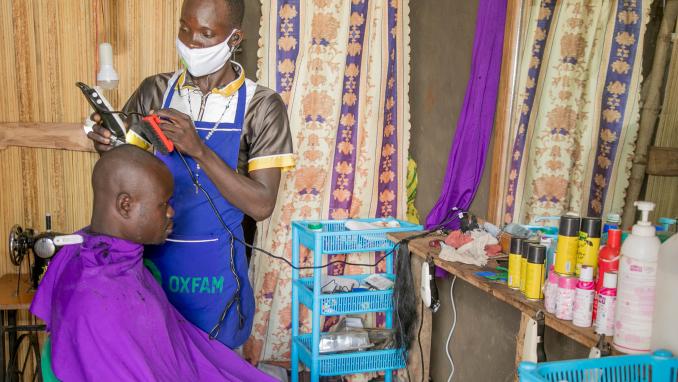
Kennedy received training in barber work and haircutting, after which he set up his business at the trading centre in Bidibidi and notes that he now feels empowered to support his mother and siblings, for whom he has bought clothing, change of diet, and hired land for farming. All this is through the salon business that earns him not less than 15,000 Uganda shillings daily.
Read Kennedy's story here.

